The tragic story of an inventor and a port city with a special vibe - Cartagena, Spain
The tragic life of Peral’s battery-powered submarine

Raised from the shipyard scrap pile. Peral's 1888 submarine resurrected and on display at the waterfront. Cartagena, Spain
Photo: Marcin FloryanPeral Submarine Cartagena,ES 2007, CC BY-SA 3.0
Isaac Peral gave life to his invention - the first ever operational battery-powered submarine with torpedo capabilities. He built it in the navy yard in Cartagena. In 1888 it was even tested. It navigated the harbour, went diving to 9 meters and launched a mock torpedo.
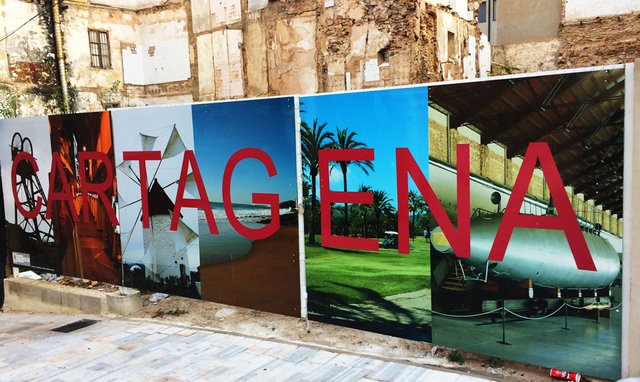
Cartagena, Spain. Ancient, old and new mixed in with lively city vibes
But Peral had to struggle with his superiors to keep the project going. Then the navy scraped it. Imagine the tragedy for Peral, who also became famous by his invention, and saw his life work discarded. It may be envy, power struggles and ego within the navy that killed Peral’s submarine project.
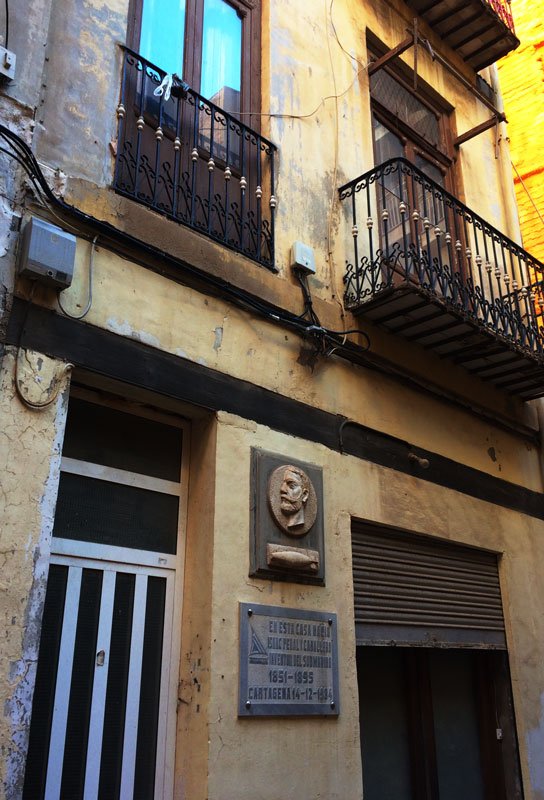
Home of Isaac Peral, a submarine pioneer. Cartagena, Spain
The innovative submersible navy vessel spent the next decades dismantled. The hull lay as a piece of scrap metal in the corner of the shipyard. Peral, suffering from an infection-turned-tumor he got at a barbershop in the Philippines years earlier, died from meningitis in his early forties in Berlin, where his tumor was operated on.
Peral submarine interior. Cartagena, Spain
Photo: public domain
Today however Peral is a celebrated Spanish hero. New Spanish navy submarines are named Peral and the original submarine hull is on display in Cartagena, a huge attraction for 1000's of cruise ship tourists who visit here for an average of 8 hours.

Street art in Cartagena, Spain
Deep, protected natural bay
Cartagena with its unique, deep natural harbour of strategic naval significance, has a long history. Human activity dating back more than 2000 years is well documented in archaeological records here.
I entered the Cartagena harbour after sailing down the Spanish coast from Torrevieja. In the marina I enjoyed the rare comfort of being up close to a dock! Even before setting foot on Carthaginian soil, still on the deck of my boat, I could sense the special vibe and beauty of
the town. One afternoon I went for a random walk in the city. Here's what I came across…
Treasures from the abyss
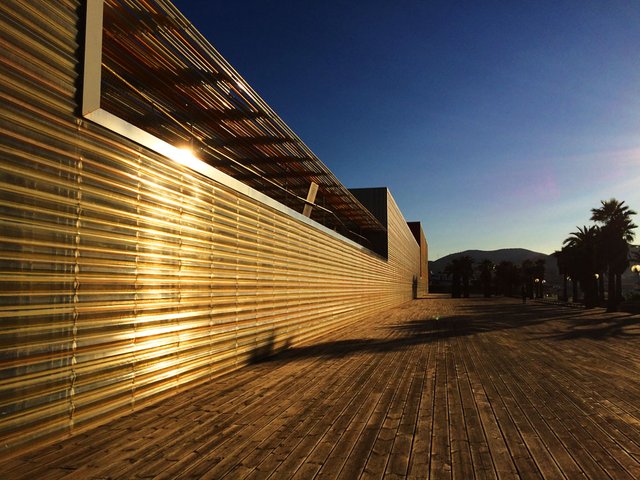
Stunning exterior of the National Underwater Archaeology Museum. Cartagena, Spain
The architecturally impressive National Underwater Archaeology Museum is located in Cartagena, right on the waterfront.
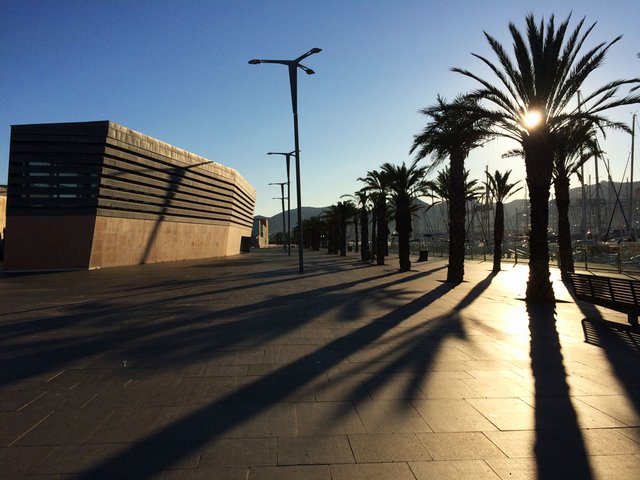
Long shadows, golden light. Sunset.
National Underwater Archaeology Museum, exterior. Cartagena, Spain
National Underwater Archaeology Museum, exterior. Cartagena, Spain
Inside the museum you'll find treasures pulled from ancient shipwrecks, reconstructed ancient ships and an exciting variety of artefacts recovered from the bottom of the sea.
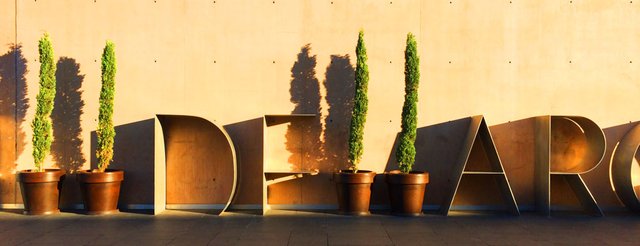
The National Underwater Archaeology Museum is a long name...but it is spelled out in beautiful large bronze letters along the museum’s waterfront. Cartagena, Spain
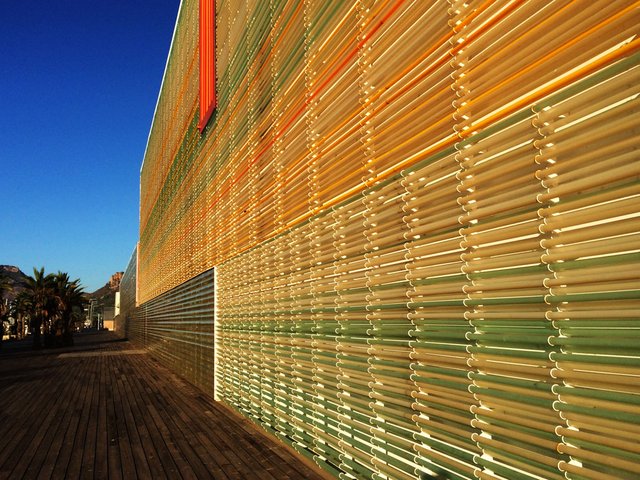
Museum exterior wall. Cartagena, Spain
A Playground
Next to the museum is a playground with some mesmerising landscaping-art-sculpture structures made of simple yet brilliantly coloured iron bars. Take a walk around this structure to get the feeling.
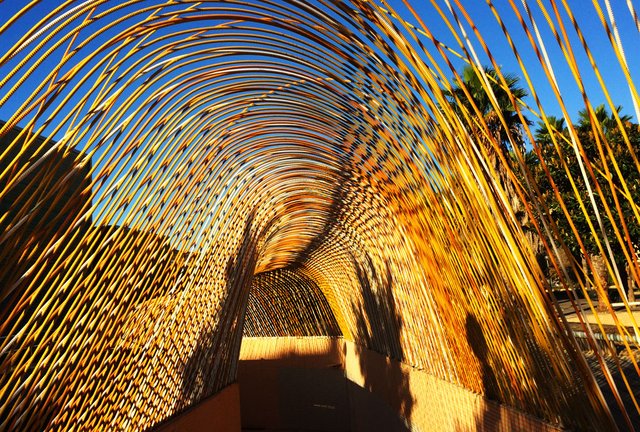
Colors, shapes and forms in constant flux. Just walk and look. Playground. Cartagena, Spain
The golden age of Cartagena
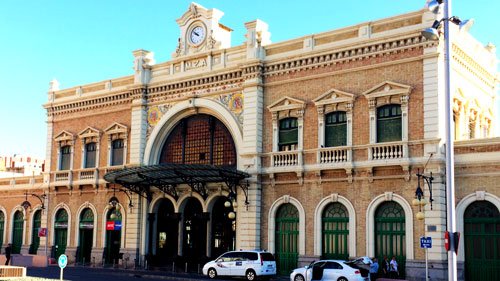
Cartagena, Spain train station.
Wrought Iron, custom glasswork and intricate woodwork in modernista style
Wrought Iron, custom glasswork and intricate woodwork in modernista style
For Art Nouveau enthusiasts, Cartagena is not to be missed. The golden age of modern Cartagena, from about 1850 on, was fuelled by expanding mining activities and as a result other industries grew large as well.
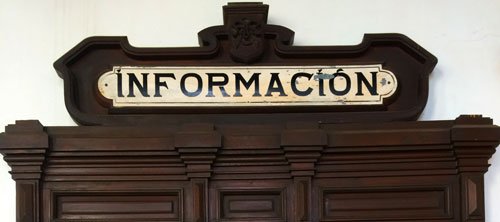
Information desk. Cartagena train station, Spain
Prosperity, expansion, and power display brought in a new architectural style - modernista.
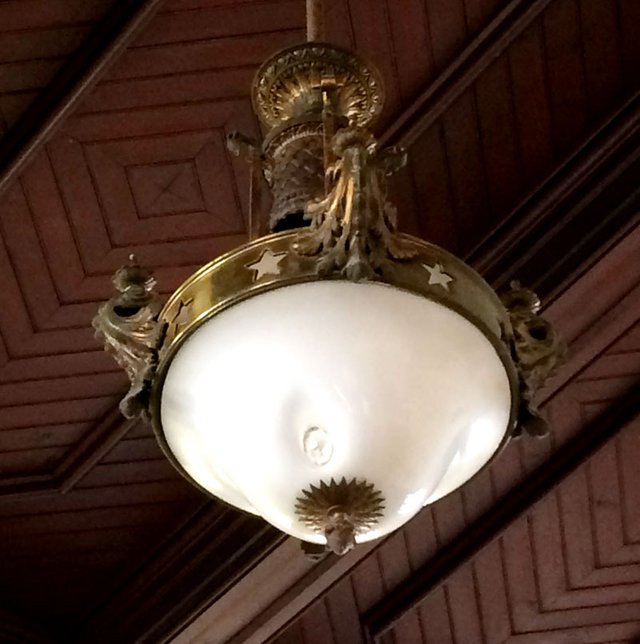
Ceiling light fixture. Cartagena train station, Spain
Residential buildings, shops, factories and other structures display beautiful work of talented artisans - intricate woodwork, colourful glasswork, imaginative ironwork and excellent stone cutting - makes the city centre a pleasure to stroll in.
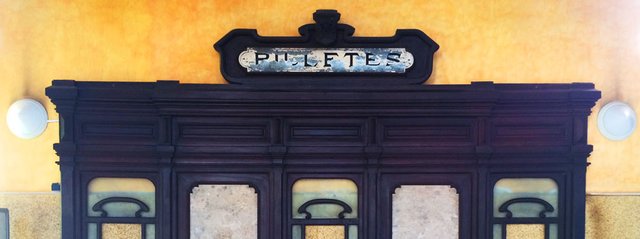
Ticket window. Cartagena train station, Spain
Casino. Cartagena, Spain
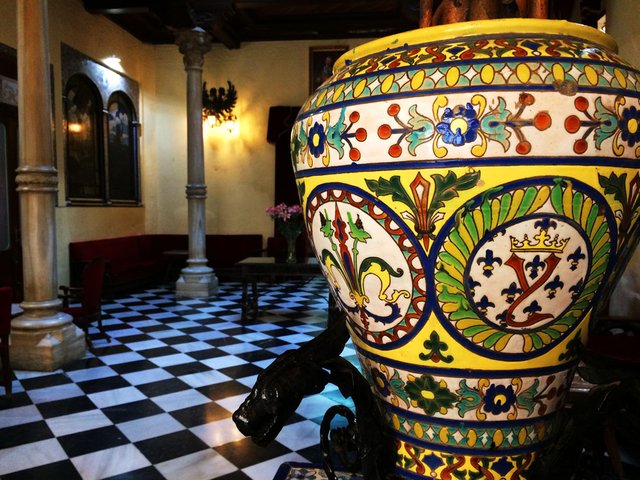
Vase in the hallway at the Cartagena, Spain, casino
Built during the golden age by a wealthy industrialist, Marquis Casatilly, this city palace was turned into a casino in 1890. It is Cartagena’s best example of original art nouveau architecture, interior design and furniture.
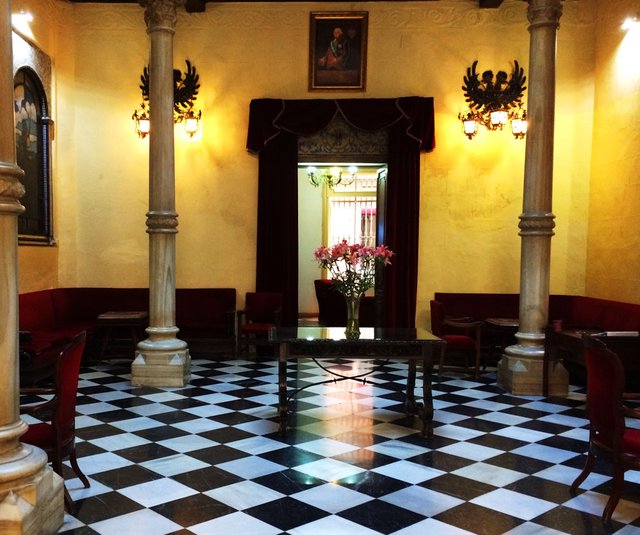
Casino hallway. Cartagena, Spain
I don’t think we can find such skilled craftsmanship today. From the floors to the walls to the ceiling, everything's made to order and is handcrafted by the best artists of the time, 1880’s spain.
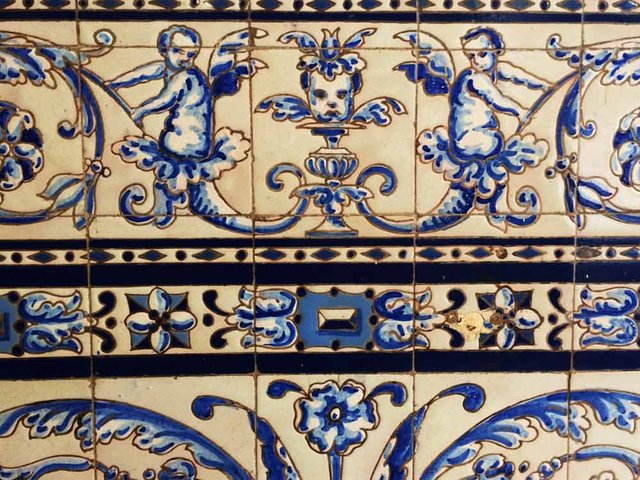
Tiles. Cartagena, Spain
In Spain, the word “casino” does not refer to a gambling establishment. Casino here means something like the British gentlemen club. A place for the higher classes of society to gather, mingle, dance, eat, drink and conduct meetings. Indeed it seems no expense was spared. The decor is highly invested and fit for the newly established class of wealth in Cartagena.
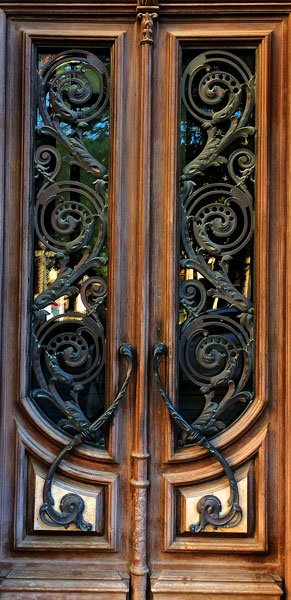
Wrought iron. Door. Cartagena, Spain, main street
I love these details. A door knob, A light fixture, the corner of a wooden cabinet, a glass window framed in wood. They tell so much and are so well made and interesting to look at.
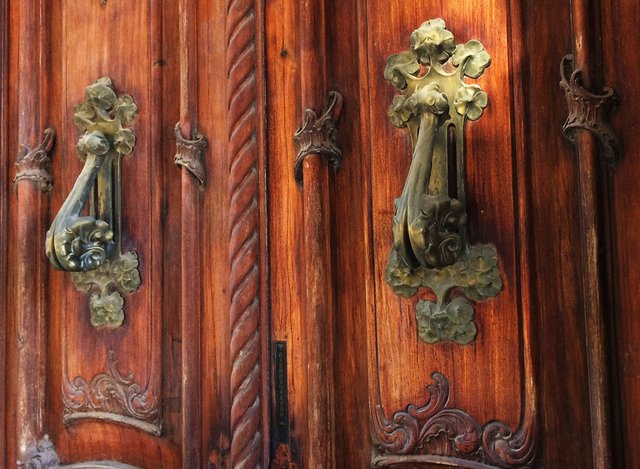
Detail. Door. Cartagena, Spain, main street
Large, tall doors with fine details.
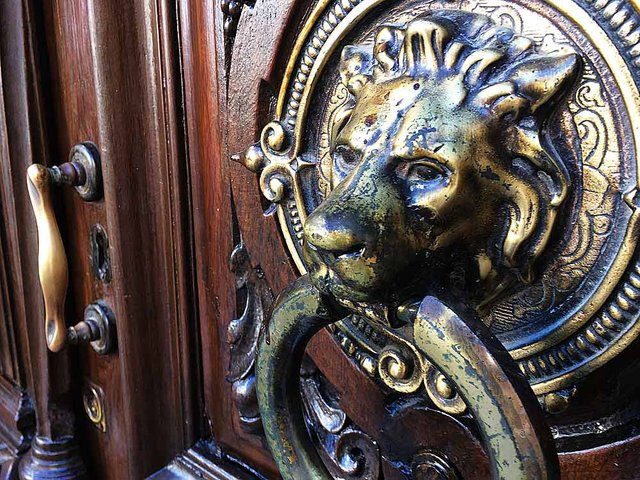
Detail. A bronze lion head on a door. Cartagena, Spain
The main street of Cartagena, Spain, is a treasure for lovers of high end modernista work. I could not always get access to the interior of these beautiful buildings, but the exterior was sometimes sufficient to satisfy my curiosity.
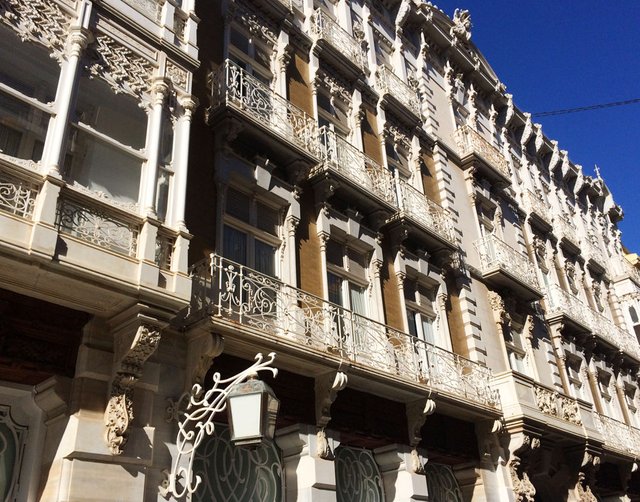
Modernista facade. Main street. Cartagena, Spain
It’s easy to fall in love with Cartagena
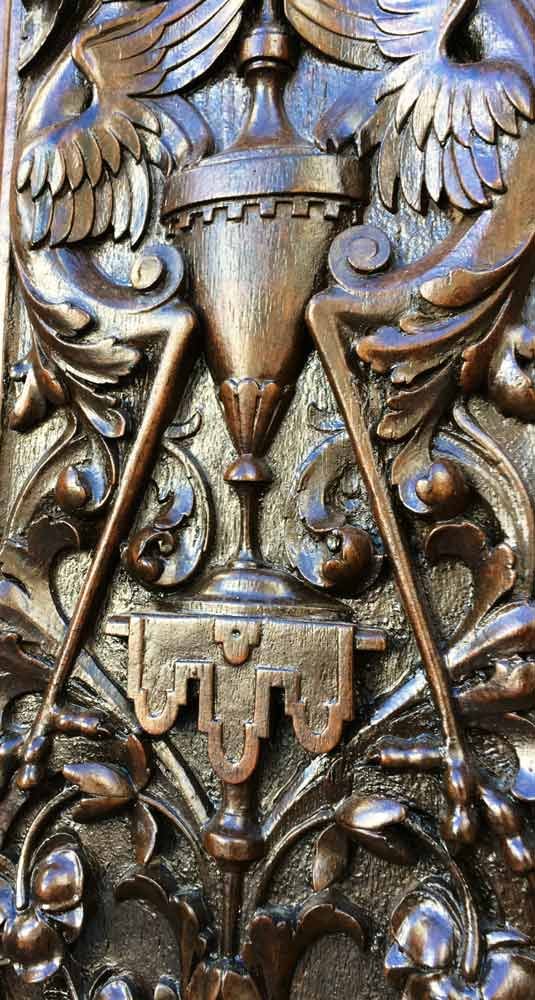
Doorway. Detail. Woodwork. Cartagena main street, Spain
Back at the marina, I woke up each morning to find an immense cruise ship docked at the port a mere 50 meters from my 11 meters sailboat.
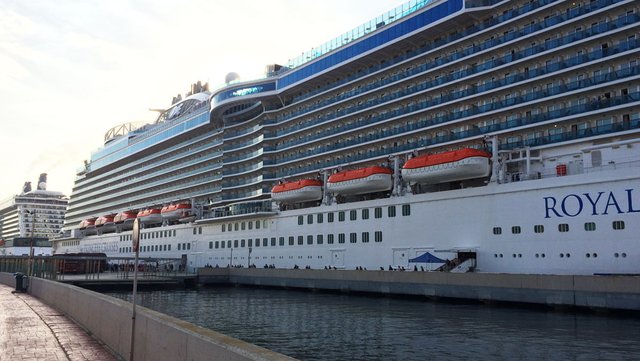
Cruise Ships. Very big. Cartagena port, Spain
The cruise ship powerful propellers push large amounts of water into the marina as they manoeuvre to dock. These man made underwater currents move the sailboats about on their mooring lines in the marina. The cruise ships arrive with first light and leave around sunset. They unload thousands of pleasure cruisers who fill the city streets, museums and cafes.
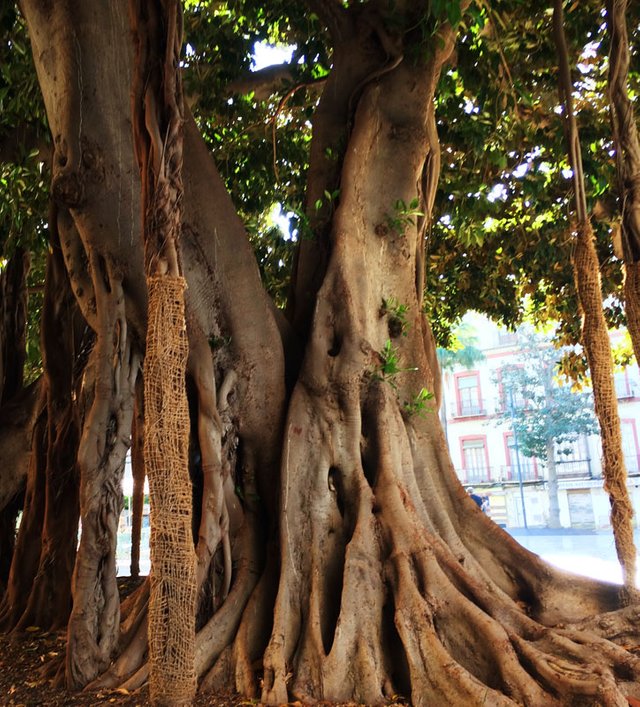
Old Bengal Ficus. Its roots are hanging from the branches. Cartagena, Spain
Cartagena is a delightful city. The people are very friendly and the city offers a lot - art, music, architecture, museums, excellent restaurants and some deserted forts on the hills overlooking the bay.

City hall building. Cartagena, Spain
I wish I could stay longer but the marina fees, although very reasonable, as well as the approaching winter, had me untie the lines from the dock after several days, and sail on. West.
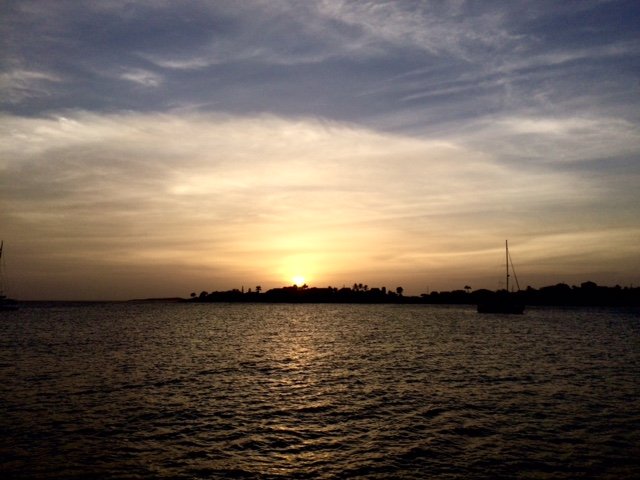
Sailing west from Cartagena, Spain
I published this story earlier in my steemit life. Decided to repost it and see what happens.
Hi! I am a robot. I just upvoted you! Readers might be interested in similar content by the same author:
https://steemit.com/photograpy/@yannay/an-electric-submarine-art-nouveau-casino-and-a-deep-blue-bay-or-cartagena-random